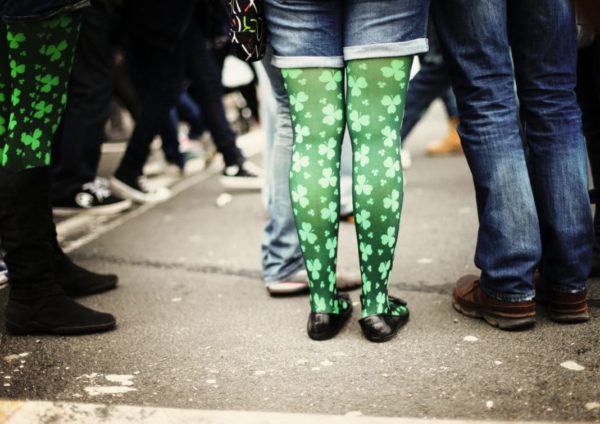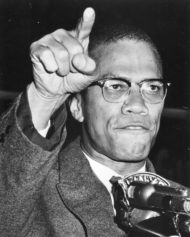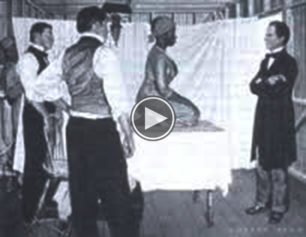
Irish immigrants struggled to compete with freed Blacks for wages and labor during the early to mid-1800’s. (Photo by Ailbhe O’Donnell)
In honor of St. Patrick’s Day, writer and historian Natasha Varner took to Twitter to school the collective public on the history of Irish immigrants, more specifically how they stepped on the backs of Black Americans to gain identity and stature in the U.S.
Varner shared the lengthy post on Saturday, March 17, while most were out lauding all-things Irish on the notoriously green holiday. She started with the decades leading up to the Civil War, years in which America saw an influx of Irish immigrants arriving between 1820 and 1860. These immigrants would go on to compete with emancipated Blacks for a spot on “the same low rung on the social ladder,” as well as jobs.
As Irish Americans, we can’t celebrate our heritage without first coming to terms with the fact that our identity is constructed on a foundation of anti-Blackness. A thread about that history for #StPatricksDay:
— Natasha Varner (@nsvarner) March 17, 2018
Irish Catholics were the undesirable immigrant group of that era. And in a system where assigned racial identities had as much to do with national origin as skin color, the Irish occupied a social category closer to Black than White.
— Natasha Varner (@nsvarner) March 17, 2018
In order to improve their status in their adopted homeland, the Irish had to work to achieve Whiteness and its attendant privileges.
— we talked about this (@nsvarner) March 17, 2018
Citing historian Noel Ignatiev, Varner explained the Irish worked to achieve whiteness and its privileges by differentiating themselves from equally “inferior” Blacks by forcing them into an even lower social class. They even began offering to work for less pay than Black workers as a means of working their way up the American social ladder and proving themselves worthy of a higher racial class.
This played out across many social spheres, including competition in the labor sector: In the antebellum period, Irish often found themselves competing with free Blacks for the same jobs in the Northern states.
— we talked about this (@nsvarner) March 17, 2018
In 1860 a Catholic priest in Philadelphia told his congregants, “you must do everything that [Black workers] do, no matter how degrading, and do it for less than they can afford to do it for.”
— we talked about this (@nsvarner) March 17, 2018
Thanks to this strategy, factories and artisanal trades become predominantly fueled by Irish labor. The Irish then used their numbers to threaten strikes and riots if even a single Black worker was brought on to the job.
— we talked about this (@nsvarner) March 17, 2018
Irishmen would go to compare their unfavorable labor to “wage slavery,” arguing that their condition was far worse than actual slaves because they weren’t afforded the “benefits” of material comfort and guaranteed work that Blacks were, Varner explained. She also noted how Irish immigrants were fiercely against the push for abolition, as the end of slavery would mean more competition for jobs and wages.
As a Congressman at the time claimed, the only difference between slaves in the South and wage slaves in the North was that “The one is the slave of an individual; the other is the slave of an inexorable class.”
— we talked about this (@nsvarner) March 17, 2018
Frederick Douglass famously reminded such detractors that his former job on the plantation was still vacant, should any dare to test the veracity of this false equivalency.
— we talked about this (@nsvarner) March 17, 2018
Varner came ready with her facts to blast what she calls the “bootstrap narrative” that the Irish pulled themselves up by the bootstraps to escape slavery and poverty in the U.S. This false narrative, she argues, is used as “evidence” to push the racist notions of Irish/White superiority as truth.
I can’t respond to all the comments here, but I will say this: if your first reaction is to get defensive, imagine what could be accomplished if you spent your energy working towards equity rather than contorting to absolve yourself and your family of wrongdoings, past or present
— we talked about this (@nsvarner) March 19, 2018
And to those saying “the past is the past, leave it there”…when do you think the laws, systems, and social orders that structure are lives today were created? If we don’t look at the past we have really no hope of achieving justice and equity today.
— we talked about this (@nsvarner) March 19, 2018

